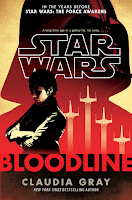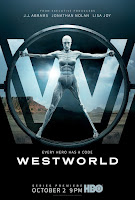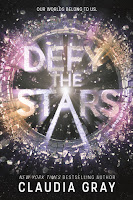Goodreads
synopsis:
The daughter of a prominent
samurai, Mariko has long known her place—she may be an accomplished alchemist,
whose cunning rivals that of her brother Kenshin, but because she is not a boy,
her future has always been out of her hands. At just seventeen years old,
Mariko is promised to Minamoto Raiden, the son of the emperor's favorite consort—a
political marriage that will elevate her family's standing. But en route to the
imperial city of Inako, Mariko narrowly escapes a bloody ambush by a dangerous
gang of bandits known as the Black Clan, who she learns has been hired to kill
her before she reaches the palace.
Dressed as a peasant boy, Mariko sets out to infiltrate the ranks of the Black Clan, determined to track down the person responsible for the target on her back. But she's quickly captured and taken to the Black Clan’s secret hideout, where she meets their leader, the rebel ronin Takeda Ranmaru, and his second-in-command, his best friend Okami. Still believing her to be a boy, Ranmaru and Okami eventually warm to Mariko, impressed by her intellect and ingenuity. As Mariko gets closer to the Black Clan, she uncovers a dark history of secrets, of betrayal and murder, which will force her to question everything she's ever known.
Dressed as a peasant boy, Mariko sets out to infiltrate the ranks of the Black Clan, determined to track down the person responsible for the target on her back. But she's quickly captured and taken to the Black Clan’s secret hideout, where she meets their leader, the rebel ronin Takeda Ranmaru, and his second-in-command, his best friend Okami. Still believing her to be a boy, Ranmaru and Okami eventually warm to Mariko, impressed by her intellect and ingenuity. As Mariko gets closer to the Black Clan, she uncovers a dark history of secrets, of betrayal and murder, which will force her to question everything she's ever known.
 Renee Ahdieh’s The
Wrath and the Dawn duology was one of the fantasy debuts that I most
enjoyed in the last two years. She has a deft touch with words and is great at
creating the atmosphere of each world. She’s definitely a fantasy author to
look out for over the next few years. There are definite parallels to Mulan in The Flame and the Mist, but very loosely. The Flame in the Mist is
set in feudal Japan, as opposed to feudal China, but an obvious parallel is
lead character, Hattori Mariko, adopting the guise of a boy in order to
infiltrate the mysterious Black Clan. By doing this, she seizes control of her
own future for the first time in a life that had thus far been sheltered and
her destiny (marriage) decided for her.
Renee Ahdieh’s The
Wrath and the Dawn duology was one of the fantasy debuts that I most
enjoyed in the last two years. She has a deft touch with words and is great at
creating the atmosphere of each world. She’s definitely a fantasy author to
look out for over the next few years. There are definite parallels to Mulan in The Flame and the Mist, but very loosely. The Flame in the Mist is
set in feudal Japan, as opposed to feudal China, but an obvious parallel is
lead character, Hattori Mariko, adopting the guise of a boy in order to
infiltrate the mysterious Black Clan. By doing this, she seizes control of her
own future for the first time in a life that had thus far been sheltered and
her destiny (marriage) decided for her.
The pivotal moment, after she has apparently been attacked
by the Black Clan and is threatened by a stranger, comes with this line:
‘I will not be bandied
about by men any longer. I am not a prize to be bought or sold.’
With that, and the actions she follows it with, she reclaims
her agency and sets the events of the story in motion. Ahdieh’s novel explores
gender roles, and class, in feudal Japan (with definite relevance to the modern
day too) and Mariko comes to stand out to the reader as a feminist mouthpiece
within the culture of the book. When it seems sudden and forced, it is because
there is not so much insight into her internal life (and can come across as
being ‘told’ rather than ‘shown’ – this also goes for a few of Mariko’s other
traits, such as her ingenuity) before the pivotal moment of her seizing control,
but it becomes an invaluable part of who she is and will definitely be of value
to readers, especially teen girls and boys who are reading fantasy for the
first time.
The feudal setting of Japan is rich and detailed and was a
joy to read about. It is a slow-burner and definitely a world that you grow
into, but it’s very much worth it and is rich, vibrant and elaborate. My main
reading experience of Japan has come through Haruki Murakami – which is
obviously very different – so this was a new experience for me and Ahdieh drew
me in masterfully. There’s definitely still a lot to be revealed about the
characters’ pasts so I’m looking forward to that. Nothing about the book was
predictable so I was genuinely riveted and eager to unravel the mysteries while
reading. I am not a big fan of the romance angle that seems obligatory in YA
fantasy, but the romance in The Flame in
the Mist is very much secondary, a slow-burn and the element of disguise
and mystery between the characters is very compelling. They are certainly
interesting characters in their own right, with their own paths to follow – and
very much equals, though I felt the male character did suffer from the brooding
anti-hero trope.
The magical/fantastical elements are used sparingly in this
book, and a little vaguely, but perhaps they will have a bigger role to play in
the sequel. Mariko’s brother, Kenshin, also has some POV chapters and this
provides a good foil – though we don’t get so much insight into his internal life.
It will be interesting to learn more about Mariko’s family and their goals, and
whether they’re all as honourable as she believes. I want to keep reading already.
I would recommend this to anyone even loosely intrigued by
the premise. I think there’s much more to come from Ahdieh and I will certainly
read on with interest. I really admire how she’s willing to dive into a variety
of cultures and create such rich stories with many layers of mystery and
intrigue that need time to be unpacked fully.
Quotes:
- “We are so much more than what we do!” Mariko drew closer, as if nearness could invoke a sense of truth. “We are …” she searched her mind for the right things to say. “Our thoughts, our memories, our beliefs!” her eyes dropped to the dying boy. To the evil tree, slowly draining him of life. “This tree is not the forest,” she said softly. “It is but one part.”
- I don’t want you to be a hero. And I don’t need anyone to save me.’
- 'Mariko nudged the handle of her spoon with a bound fingertip. “Are you ever angry you were born a woman?” Yumi sat back on her heels and studied Mariko for a spell. “I’ve never been angry to have been born a woman. There have been times I’ve been angry at how the world treats us, but I see being a woman as a challenge I must fight. Like being born under a stormy sky. Some people are lucky enough to be born on a bright summer’s day. Maybe we were born under clouds. No wind. No rain. Just a mountain of clouds we must climb each morning so that we may see the sun.’
- 'Mariko supposed it was possible all women and men were forced to wear their own kind of masks’
*Thank you to Hodder and NetGalley for a chance to
read an eARC of the book.





